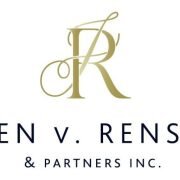Best Bankruptcy & Debt Lawyers in Centurion
Share your needs with us, get contacted by law firms.
Free. Takes 2 min.
List of the best lawyers in Centurion, South Africa
South Africa Bankruptcy & Debt Legal Articles
Browse our 1 legal article about Bankruptcy & Debt in South Africa written by expert lawyers.
- Debt Collectors in South Africa: Harassment and Verification
- You can demand proof of the debt, the collector’s authority, and a full breakdown before you pay. Do not acknowledge the debt or make part-payments until you verify it. Harassment is illegal. You may set contact times, request written-only communication, and lodge complaints with the Council for Debt Collectors or... Read more →
About Bankruptcy & Debt Law in Centurion, South Africa
Bankruptcy and debt law in Centurion, South Africa forms part of the broader area of insolvency law. Centurion, as part of the Gauteng province, follows the South African legal framework set out by national statutes and case law. Bankruptcy, officially called "sequestration" for individuals or "liquidation" for companies, is a legal process intended to offer relief to debtors who are unable to pay their debts. These laws also ensure that creditors are treated fairly, and financial obligations are resolved as equitably as possible under the law. Whether you are an individual or a business facing mounting debts, understanding your legal rights and responsibilities is crucial to navigating the complex process of insolvency in South Africa.
Why You May Need a Lawyer
Legal intervention is often necessary when facing financial distress due to the complexity and potential consequences of bankruptcy and debt matters. People typically seek legal advice for the following reasons:
- They are unable to meet their debt obligations and are considering applying for sequestration or liquidation.
- They have received court summons, garnishee orders, or threats of legal action from creditors.
- Creditors are pursuing aggressive debt recovery measures such as attachment of assets or wage garnishments.
- They wish to explore alternatives to bankruptcy, like debt review or debt restructuring.
- They are facing confusion about their legal options, rights, or obligations under South African insolvency law.
- Businesses require guidance on voluntary or compulsory liquidation procedures.
- They need to defend against sequestration or liquidation proceedings brought by creditors.
Local Laws Overview
South African insolvency law is primarily governed by the Insolvency Act 24 of 1936, the Companies Act 71 of 2008, and the National Credit Act 34 of 2005. In Centurion, as in the rest of South Africa, insolvency can take the form of voluntary or compulsory sequestration for individuals, and voluntary or compulsory liquidation for companies. Additionally, the National Credit Act offers the option of debt review for over-indebted consumers, providing a less drastic alternative to sequestration. Key aspects include:
- Creditors may apply for a debtor’s sequestration if it is shown that the debtor is insolvent and has committed an act of insolvency or is unable to pay debts as they become due.
- Individuals may voluntarily apply for their own sequestration to obtain a fresh start, subject to strict legal and financial requirements.
- Businesses or their creditors can apply for liquidation if liabilities exceed assets, or if the business is unable to pay its debts.
- Debt review allows over-indebted individuals to restructure their repayments, protecting them from legal action by creditors during the review process.
- Debtors’ assets may be sold to satisfy debts, and certain assets are protected by law.
- Both sequestration and liquidation have long-term legal and financial consequences, like impaired credit records and restrictions on obtaining future credit.
Frequently Asked Questions
What is the difference between sequestration and liquidation?
Sequestration refers to the insolvency process for individuals, where a court declares them insolvent and their estate is handed over to a trustee. Liquidation is the corporate equivalent, involving the winding up of a company or close corporation’s affairs and the distribution of its assets to creditors.
Can I apply for bankruptcy (sequestration) myself?
Yes, individuals may voluntarily apply for their own sequestration if they are truly insolvent. The process requires showing the court that your liabilities exceed your assets, and that sequestration will be to the benefit of your creditors.
What is debt review, and how does it help?
Debt review is a legal process under the National Credit Act that allows over-indebted consumers to restructure their debt repayments through a debt counsellor. While under debt review, you are protected from legal action by creditors as long as you comply with the repayment plan.
How will bankruptcy affect my assets in Centurion?
When you are sequestrated, most of your assets are placed in the hands of a trustee who sells them to pay creditors. Certain assets, such as necessary clothing and household goods, may be protected by law from seizure.
Will bankruptcy clear all my debts?
Not all debts are automatically cleared in bankruptcy. Some obligations, like maintenance payments, court fines, and certain taxes, may still need to be paid after sequestration or liquidation.
How long does sequestration or liquidation take?
The entire process can take several months to over a year, depending on the complexity of the estate and the number of creditors involved. The process includes court applications, advertising, investigation by a trustee or liquidator, and distribution of assets.
Can I be sued for debt if I am under debt review?
While you are under debt review and in compliance with your restructured repayment plan, most legal action by creditors is suspended. However, if you default on your repayments, creditors may resume legal proceedings.
What happens to my credit record after bankruptcy or debt review?
Both sequestration and debt review negatively impact your credit record. After rehabilitation (for sequestration) or completion (for debt review), your credit record can be amended, but the process may take time and requires official confirmation or court orders.
What are the costs involved in filing for sequestration or liquidation?
Costs include court and legal fees, as well as the expenses of administering your estate or business closure. Some are fixed, while others depend on the complexity of your case and the value of your assets.
Can foreigners living in Centurion apply for debt review or sequestration?
Foreign nationals can apply for debt review or sequestration if they are resident in South Africa and meet the legal criteria. It is recommended to seek tailored legal advice for specific residency or citizenship-related considerations.
Additional Resources
If you need more information or assistance, the following resources can be helpful:
- National Credit Regulator (NCR) - Oversees the debt counselling industry and consumer protections under the National Credit Act
- Master of the High Court - Administers insolvency matters and estates
- South African Law Society - Provides referrals to solicitors specializing in insolvency and debt matters
- Legal Aid South Africa - Offers legal assistance to qualifying individuals
- Credit Bureau South Africa - Manages consumer credit records and information
- Debt Counselling Associations - Help individuals find accredited and reputable debt counsellors
Next Steps
If you are facing overwhelming debt or potential bankruptcy in Centurion, South Africa, here is how you can proceed:
- Take stock of your financial situation by listing all your assets, liabilities, and income sources.
- Consult with a qualified attorney or debt counsellor who specializes in insolvency and debt law.
- If appropriate, explore alternatives to sequestration or liquidation, such as debt review or informal arrangements with creditors.
- Gather all relevant financial documentation before your legal consultation, including contracts, bank statements, and correspondence with creditors.
- Follow professional legal advice to ensure you understand your rights, obligations, and the potential impact of any action taken.
- Be proactive in communication with your creditors and keep thorough records of all interactions.
Bankruptcy and debt issues can have serious and long-term effects. Seeking timely legal advice and understanding your options will give you the best chance of resolving your financial difficulties and achieving a fresh start.
Lawzana helps you find the best lawyers and law firms in Centurion through a curated and pre-screened list of qualified legal professionals. Our platform offers rankings and detailed profiles of attorneys and law firms, allowing you to compare based on practice areas, including Bankruptcy & Debt, experience, and client feedback.
Each profile includes a description of the firm's areas of practice, client reviews, team members and partners, year of establishment, spoken languages, office locations, contact information, social media presence, and any published articles or resources. Most firms on our platform speak English and are experienced in both local and international legal matters.
Get a quote from top-rated law firms in Centurion, South Africa — quickly, securely, and without unnecessary hassle.
Disclaimer:
The information provided on this page is for general informational purposes only and does not constitute legal advice. While we strive to ensure the accuracy and relevance of the content, legal information may change over time, and interpretations of the law can vary. You should always consult with a qualified legal professional for advice specific to your situation.
We disclaim all liability for actions taken or not taken based on the content of this page. If you believe any information is incorrect or outdated, please contact us, and we will review and update it where appropriate.
Browse bankruptcy & debt law firms by service in Centurion, South Africa
Centurion, South Africa Attorneys in related practice areas.









